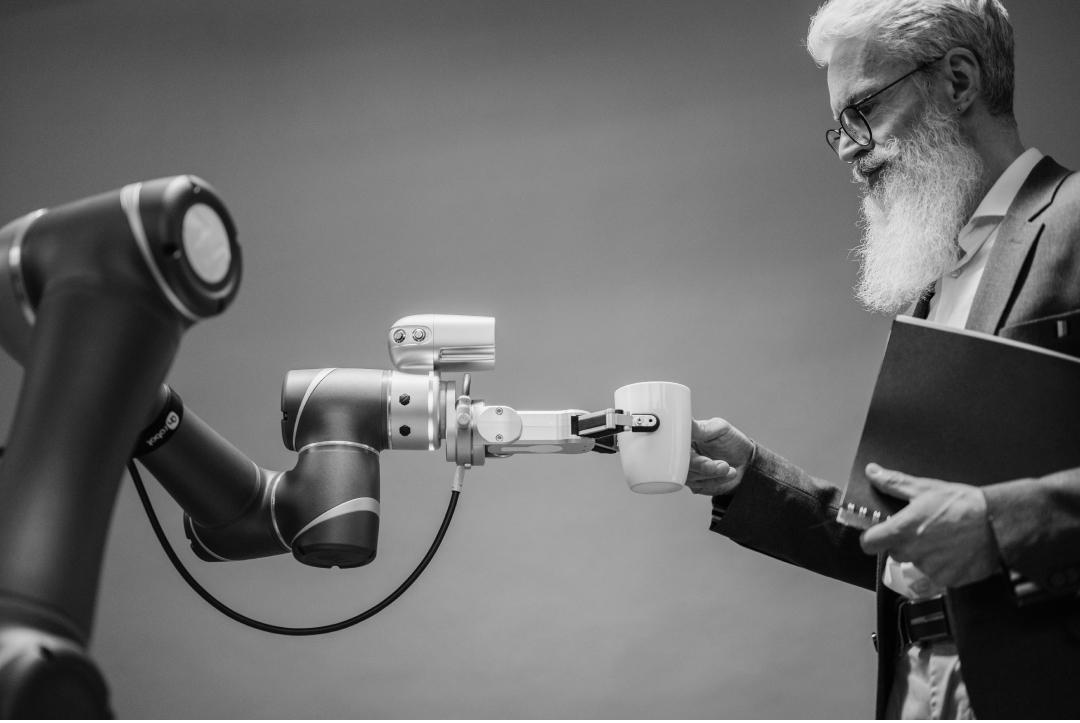

The future, you know? Flying cars, flying skateboards, flying people – everything up in the air. And there are our humble butler robots, just plodding along on the ground, the only things not flying.
That’s what people back in the day probably imagined for today’s innovations. Perhaps the movie Back to the Future had an influence on that. But hey, while we may not have actual flying stuff or robots cleaning our kitchen, some seriously cool tech things on the horizon might not get all the attention but are still pretty exciting.
For now, let’s talk about the intersection of digital health and AI.
When it comes to technology that gives off an uncanny valley vibe, virtual assistants and chatbots take the lead in being the most human-like.
Let’s be honest. We’ve all bumped into chatbots at some point, even if we have actual friends or real people/co-workers to rely on. But that’s not the point here. To put things into perspective, a chatbot is a computer program that uses AI and natural language processing (NLP) to mimic human conversation.
Think ChatGPT. Everyone knows him – the star of the show.
But there are other chatbots that are more relevant to digital health. Here are a few examples:
Some people worry that AI will snatch away our jobs, especially in fields like content writing and development. But let me tell you, based on what we know, it’s unlikely to happen anytime soon. Take chatbots, for example. They can’t learn from experience, they mess up more often, and they don’t have that human touch of emotions and creativity. So, for now, we can breathe a sigh of relief!
“I don’t anticipate significant job displacement for humans in the near future due to the adoption of AI. While AI is an incredible technology, it is not yet advanced enough to completely replace human workers,” says Ilona Bernotaite, our Chief People Officer.
Now, let’s talk about virtual assistants, the ones made of pixels who strut through your computer screen with a messy bun, a steaming cup of coffee, and an amusing stack of freshly printed files. Don’t blame me, it’s the romcoms that paint this picture.
AI assistants have been with us for a long time now. I’m talking Siri, Cortana, Alexa, or others. But there are those that can be used in digital health. Here are a few examples:
In the fast-paced world of emerging AI-driven technology, it can be challenging to keep up with the latest additions. However, staying informed and embracing these advancements can greatly benefit you working in the digital health field, or any other field for that matter, by providing valuable tools to enhance day-to-day tasks.
I’m betting that one day we’ll have these awesome “robot nurses.” Picture this: they’ll crack jokes while robotically drawing your blood for tests. Okay, the big smart, and reliable sources are telling me that I’m wrong. So, let’s take a look at what might actually happen.
For instance, digital art techniques can now create custom, working biomolecules on demand.
What?
Scientists have developed an AI tool that can design brand-new proteins from scratch. These proteins can serve as the foundation for groundbreaking vaccines, life-saving therapeutics, and innovative biomaterials.
Moving on from that to the realm of drug discoveries. Right now, the big focus in drug discovery is on AI technologies because bringing new drugs to market is crazy expensive, and most of them fail in clinical trials. So, pharmaceutical companies are teaming up with AI startups to get more bang for their buck.
AI can go through tons of compounds and narrow down the options for specific drug targets. The coolest part? AI can even find completely new targets by spotting tiny differences between, let’s say, a healthy brain and one with Parkinson’s. It’s like AI is uncovering secrets that even scientists might miss.
But, there are things that need to be considered when implementing AI in digital health, as Kasparas Aleknavicius, CEO of Bioma at Kilo Health, explains:
“Although the recent findings that link AI and digital health are promising, we must also remain cognizant of the challenges and ethical considerations associated with AI implementation. It’s crucial to ensure transparency, accountability, and patient privacy when integrating AI technologies into our healthcare systems. We must prioritize building robust regulatory frameworks and fostering collaborations between healthcare professionals, technology experts, and policymakers to establish guidelines and standards that promote responsible and safe AI adoption.”
And that’s just scratching the surface of what’s happening with AI and digital health. But for now, let’s wrap it up here and catch you in the next one.
Or perhaps you’ve been hiding a mind-blowing digital health product made with AI in your basement? Bring it here and check out our co-found program.

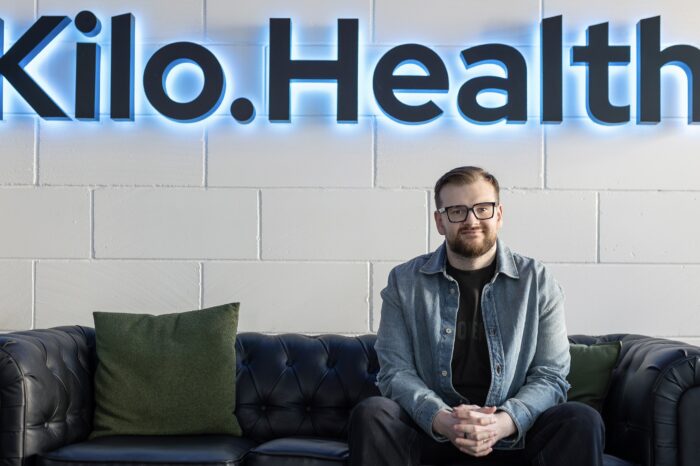
Kilo Health concluded 2024 on a strong note, achieving stable revenues and growth, alongside a team of 450 employees. In 2024, the company’s consolidated revenue remained steady at €234 million, the same as in 2023. Despite external market challenges, Kilo…
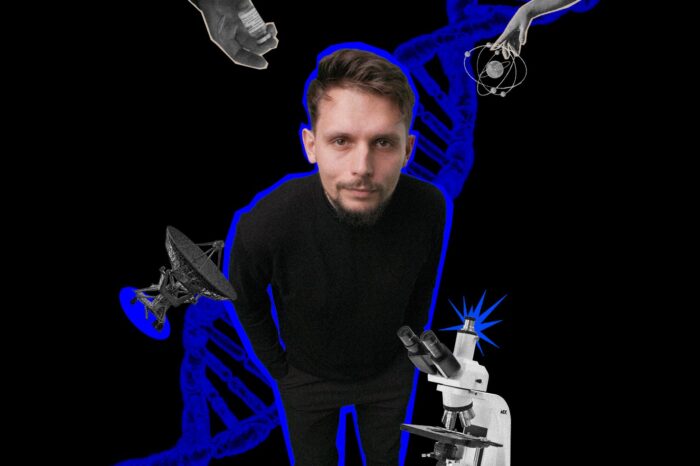
Ask, research, support. These three words sum up my role — or maybe just the nerd face emoji. Currently, I am working as a Scientific Research Lead at Kilo Health. But before that, I’ve always been on a similar path,…

As we’re entering an exciting new chapter of business growth and leadership, it’s the perfect time to catch up on the latest changes in our team and where we’re headed next. Dive in and get to know our new CEO…

I’m Matas, and when asked, I refer to myself as an intern — always learning. However, research, strategy, business development, and idea generation are the cornerstones of my work. I want to pull back the curtain and give you an…

I’m Deimante, currently Head of Marketing at Kilo Health, and a big lover of this company. My journey to being hired at Kilo has been quite the ride. How it all started? I underwent interviews with 11 different people and…

Ever dreamt of taking the lead, even if the path isn’t crystal clear? Or to have someone believe in you and offer you a chance to figure out whether you would thrive in a startup environment? Speaking of which, Kilo…
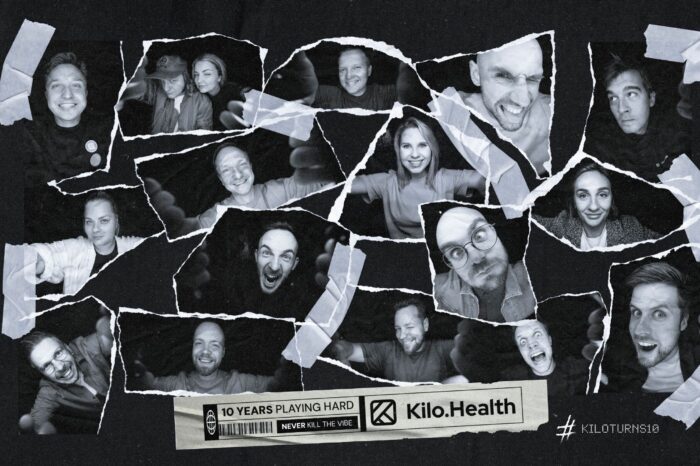
A whole decade has raced by in the blink of an eye for us at Kilo Health, and what better way to celebrate than to reflect on the milestones and lessons over the years? Do you know where we started?…

We, the co-founders, are just ordinary individuals with grand ambitions. There are times when we work twice as long and intensely as others, yet we’re equipped with the same amount of daytime, energy, and capacity. However, as leaders in the…

There’s no enchanting tale behind how I became a part of Kilo Health. In truth, some of us regular folks simply have regular journeys, and that’s perfectly fine. What counts is that today, I hold a successful product in my…

Reflecting on your achievements from the previous year is advantageous. That’s exactly what we did, proudly demonstrating our boundless aspirations through an impressive 84% growth and 213 million euros. So let’s put our hands in the air and celebrate together,…

I joined Kilo Health back in 2019, and I can prove that when people’s values and mindsets align, great things can be accomplished, even if you don’t have a plan. BoomeranGO!, the first and only product for children provided by…
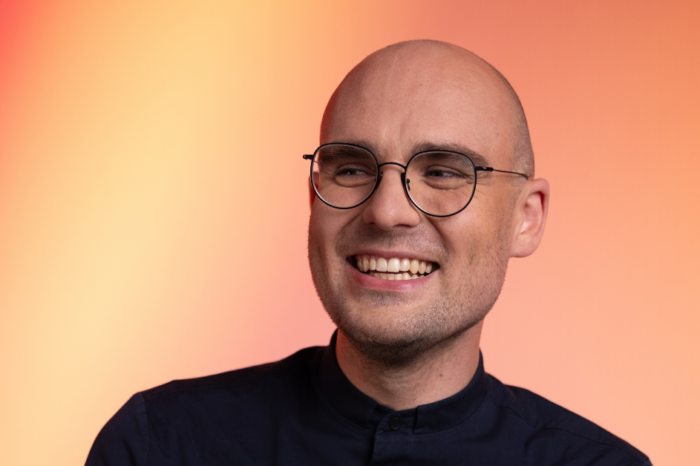
Lighting, sound, set, and actors are essential components of a film studio, but they are not the sole factors that define its success. Consistent creativity, appreciation of talent, and adaptability to market trends are a few of the things that…
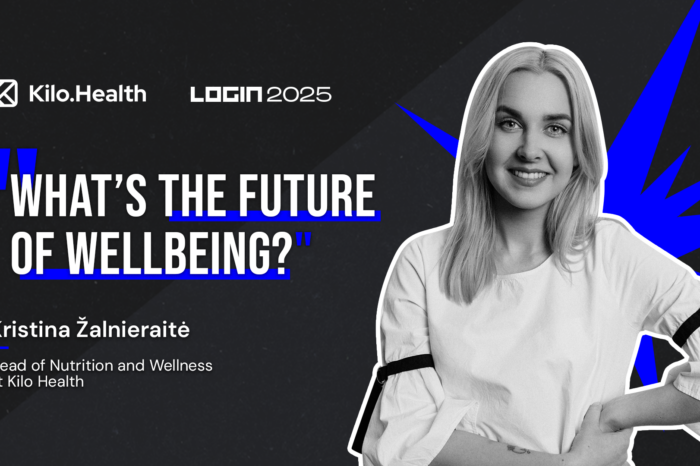
Imagine a world where technology creates a tailor-made meal plan and recommendations after analyzing different data about you. This is not science fiction but a reality that is fast approaching. Traditional plans drawn up by nutritionists are already being replaced…

Hey, I’m glad you’re here — I’m Viktorija Jokantaite-Kutke, the CEO of the Weight Management Accelerator at Kilo Health. One thing about me is that I don’t do boredom. I am always moving, always building. Try to keep up! When…